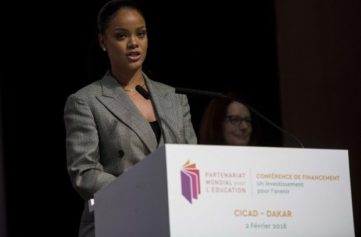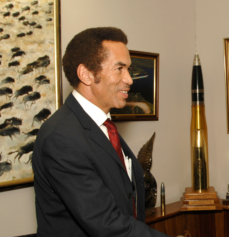DAKAR, Senegal — Amantle Montsho’s room, about 100 square feet, has no window to the outside. When she flipped on the light switch one day after practice, a flickering bulb did little to illuminate the space.
Montsho plopped onto the pink blanket covering her twin-size bed. She was 3,600 miles from home, living in an austere dormitory among 19 elite athletes from throughout Africa who have come to train at a more sophisticated facility. The local languages are Wolof and French; she is fluent in neither.
Each day, her routine is the same. She eats, sleeps and trains her body to run one lap around a track as fast as possible. There are little to no social activities, no corporate functions with sponsors, almost no visitors. In this bustling city on mainland Africa’s westernmost tip, she is as anonymous as she is Spartan in her existence.
Montsho, a 28-year-old track athlete from rural Botswana, is the world champion in the 400 meters and a likely medal contender at this summer’s London Olympics. In many ways, she embodies the state of the modern international sports industry: a woman from a poor village in a country where female athletes are rarely encouraged, she is the beneficiary of programs designed to support such athletes. With the Olympics offering an ever bigger and more lucrative global stage, Montsho willingly lives in near isolation in her quest for gold.
“I think it’s an advantage for me because when I’m here, I’m not doing anything,” she said. “Here, I am just concentrating on my training.
“I’m here to do my business.”
For every country that lavishes money and fame on its Olympic hopefuls, there are many more, like Botswana, that have precious little in the way of a sports development system. To combat the disparity — and with the hope of expanding its audience into more corners of the globe — the governing body for track and field, known by its acronym, I.A.A.F., established eight training centers, including the one here, to give promising athletes like Montsho access to better resources.
For Montsho, who won her world title last year by three-hundredths of a second, the opportunity may be priceless. Government and sports officials in Botswana hope that she will become the first person from their country to win an Olympic medal. She already has an endorsement deal with Nike that provides her with running gear and appearance fees.
Since she entered the training program in Dakar in 2006, Montsho has shaved three seconds off her 400-meter time, advanced to the finals in the 2008 Beijing Olympics and won several international titles. A gold medal in London, she said, “would mean everything to me.”
“It’s what I have left to do.”
To read the entire story by Mary Pilon, go to NY Times


